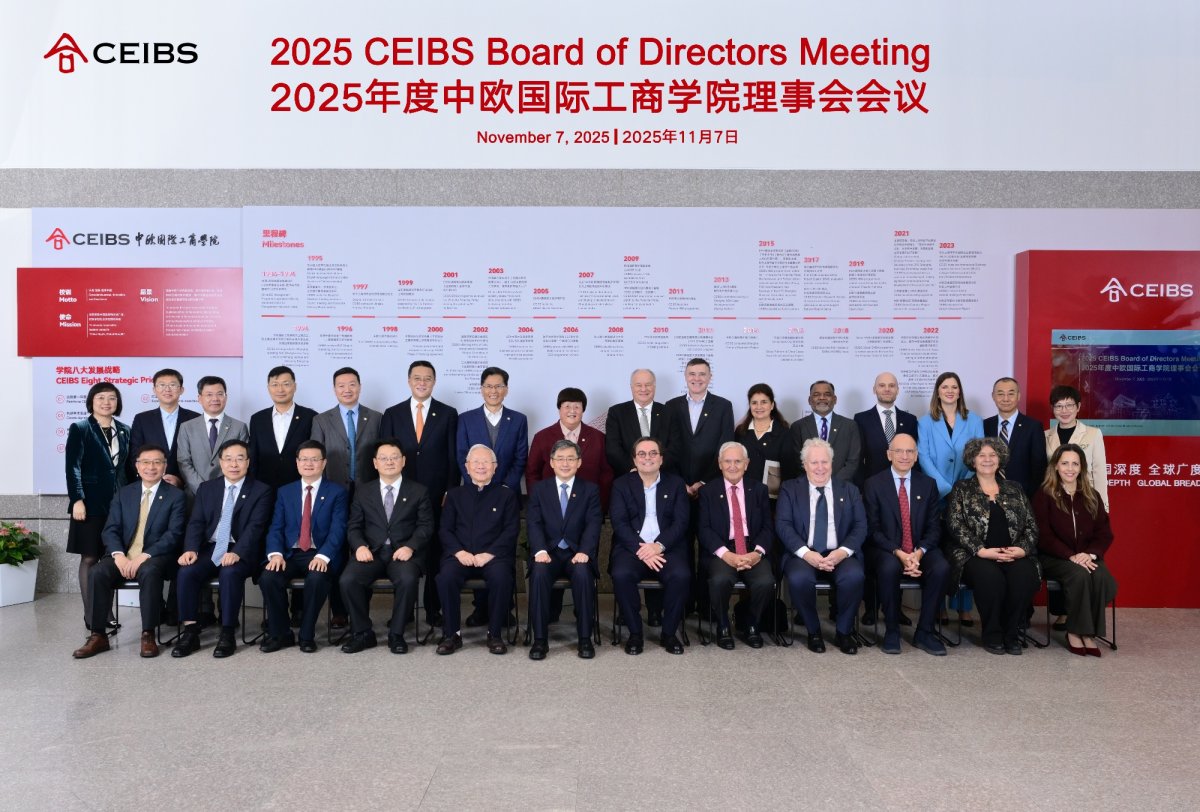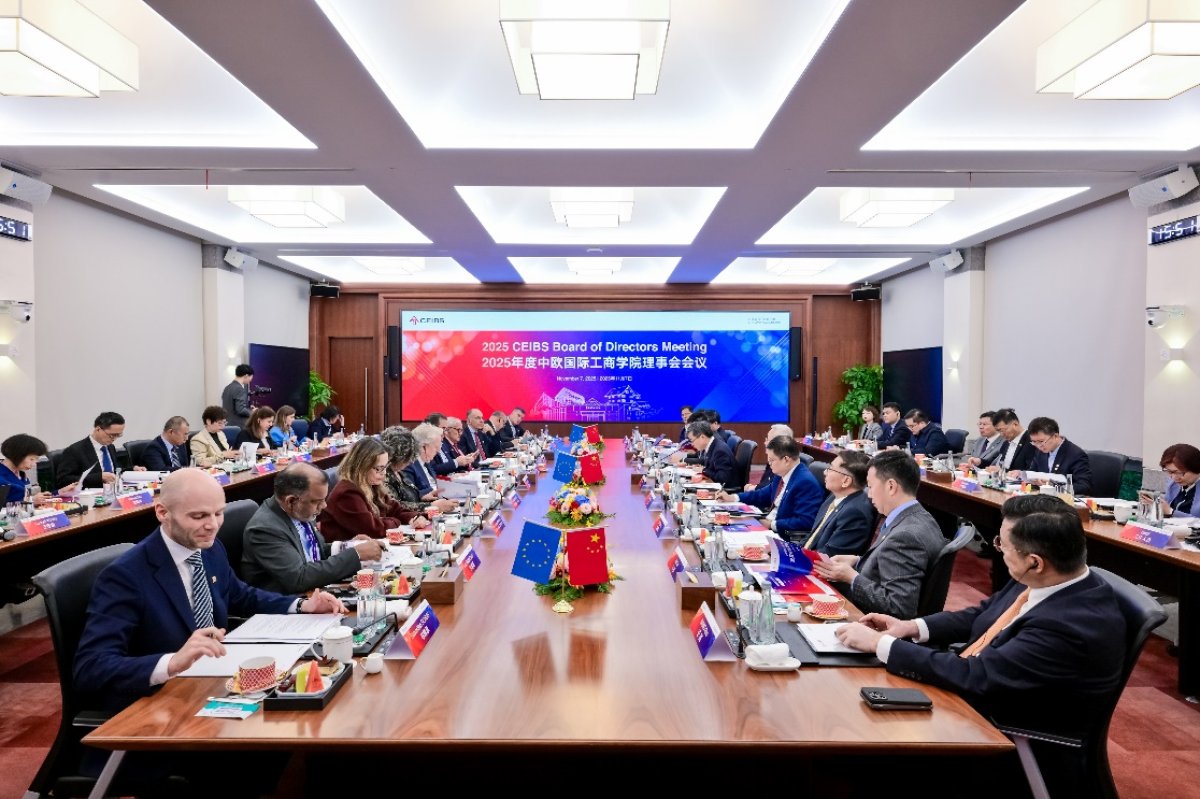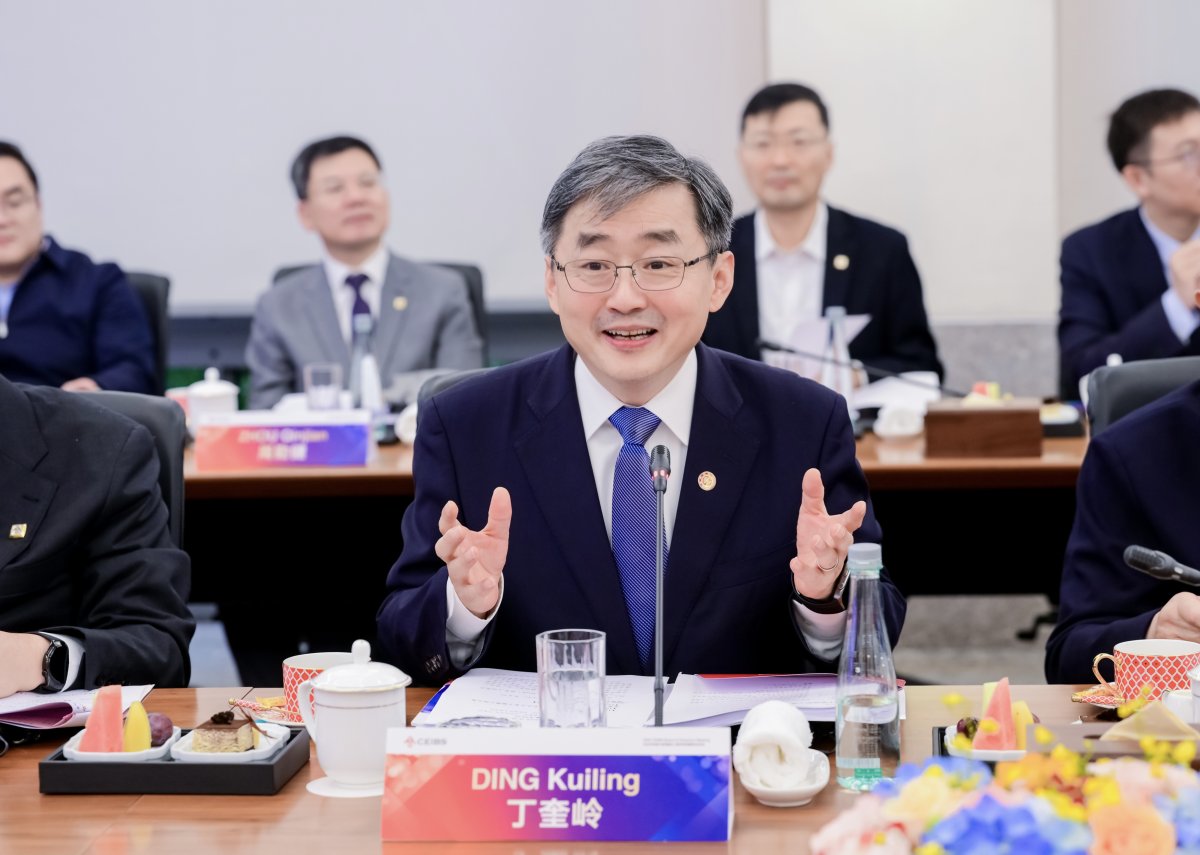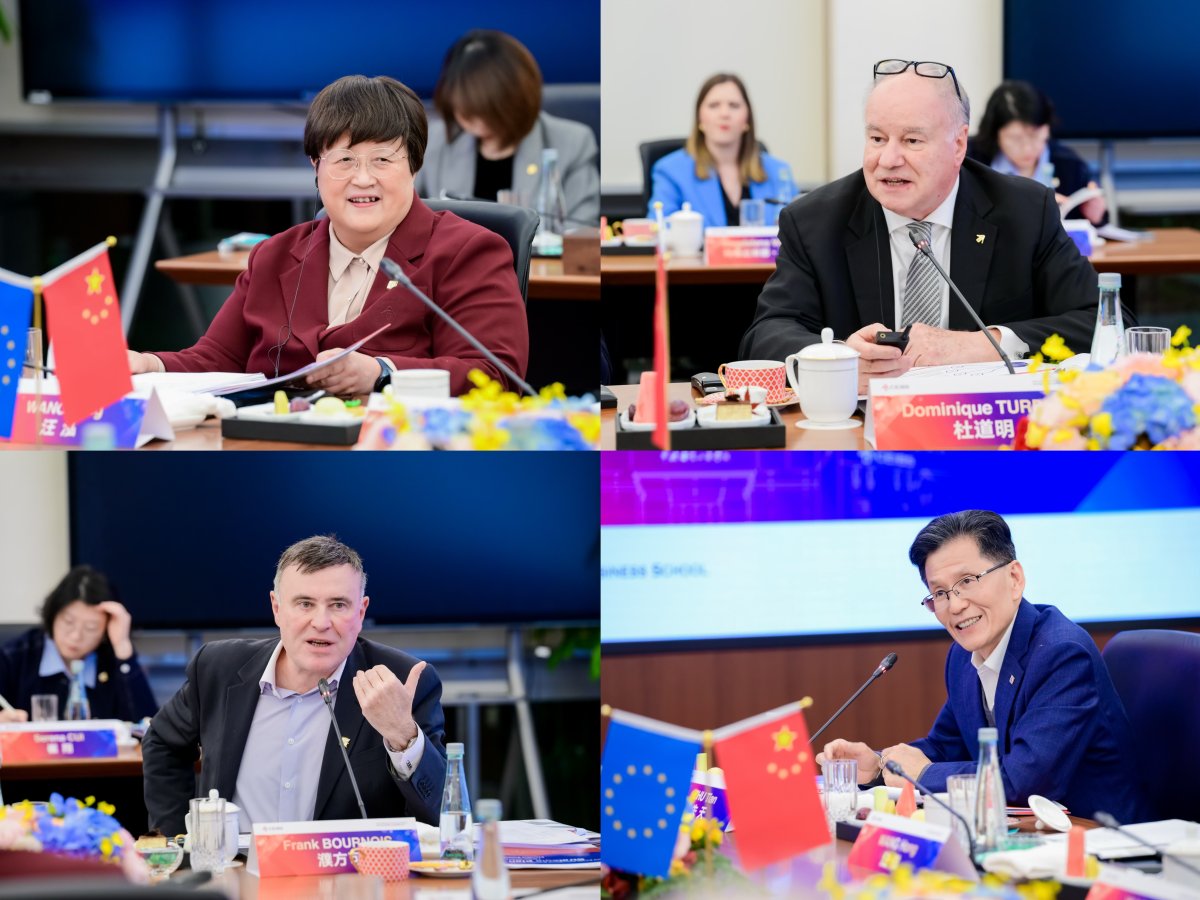CEIBS Board of Directors charts next chapter with Strategic Plan (2026-2030)
November 7, 2025. Shanghai – CEIBS held its 2025 Board of Directors Meeting today on the school’s Shanghai campus. Coinciding with the 50th anniversary of the establishment of diplomatic relations between China and the European Union and marking the conclusion of CEIBS’ Strategic Plan (2021–2025) as well as the beginning of its Strategic Plan (2026–2030), the annual meeting carried particular significance this year in bridging the school’s past achievements and future aspirations.
All 12 board members attended the meeting. The session was chaired by Professor Ding Kuiling, Chairman of the Board, Academician of the Chinese Academy of Sciences, and President of Shanghai Jiao Tong University. Other attendees included Professor Eric Cornuel, Vice Chairman of the Board and President of EFMD Global; Professor Liu Ji, Honorary CEIBS President; Professor Zhou Yaming, Deputy Secretary-General of the Shanghai Municipal Government and Director of the Shanghai Municipal Education Commission; Mr Wang Ping, Secretary of the Qingpu District Committee of Shanghai; Professor Xi Lifeng, Executive Vice President of Shanghai Jiao Tong University; Dr Gao Guofu, former Chairman of Shanghai Pudong Development Bank Co., Ltd.; Professor Romano Prodi, former President of the European Commission and former Prime Minister of Italy (who attended online); Professor Jean-Pierre Raffarin, former Prime Minister of France and CEIBS Distinguished Professor; Mr Jean Charest, former Deputy Prime Minister of Canada and former Premier of Quebec; Professor Enrico Letta, former Prime Minister of Italy and Dean of the School of Politics, Economics and Global Affairs at IE University; and Professor Frédérique Vidal, former French Minister of Higher Education, Research and Innovation. Members of the CEIBS Management Committee and representatives from the Shanghai Municipal Education Commission, Shanghai Jiao Tong University, and EFMD were also present.
Chairman Ding Kuiling first extended warm congratulations to Vice Chairman Eric Cornuel on recently receiving the Shanghai Magnolia Gold Award. He noted that in 2025, CEIBS had seized the opportunity presented by the 50th anniversary of China–EU diplomatic relations to deepen bilateral ties between the EU and China, advance academic research and think tank development through its world-class faculty, expand talent cultivation through innovative initiatives, and lead transformation in management education through deep integration with AI. He added that CEIBS is also formulating its Strategic Plan (2026–2030), which will serve as a roadmap for its continued growth and excellence. Looking ahead, he expressed hope that CEIBS would remain abreast of global trends, align its mission with global development, utilise China–EU cooperation as a driving force, benchmark itself against the world’s top business schools, continuously optimise governance, deepen international exchange, and harness the unique strengths of its Sino-foreign partnership to help shape a new paradigm for global management education.
Vice Chairman Eric Cornuel emphasised that in an era of uncertainty, China and Europe, as two stabilising powers, play a vital role in global peace and development. He added that over the past 31 years, CEIBS has remained among the world’s leading business schools, standing as a model of successful China–EU cooperation that embodies progress, stability, collaboration, and trust. Looking forward, he expressed hope that CEIBS would continue to strengthen its faculty, reinforce its distinctive European dimension, and make even greater contributions to global management education.
CEIBS President Wang Hong then provided a comprehensive overview of CEIBS’ progress in 2025 and the development of its Strategic Plan (2026–2030). She reviewed the school’s achievements over the past five years in terms of global influence, governance, international cooperation, and faculty research; analysed current opportunities and challenges; and outlined plans to reinforce the school’s Eight Strategic Priorities, ensuring CEIBS’ continued growth in international competitiveness and global impact through conscientious implementation.
CEIBS President (European) Dominique Turpin then outlined CEIBS’ progress in internationalisation, including the strengthening of global partnerships, global community building, and increased investment in global visibility and international development. He emphasised that in 2026, CEIBS would further deepen its ties with Europe, expand its global recognition, and consolidate its international leadership.
CEIBS Vice President and Dean Frank Bournois shared updates on faculty development, research, cooperation, the expansion of high-calibre talent programmes, and the integration of ESG and AI into the school’s operations and curricula. CEIBS Vice President and Co-Dean Zhu Tian reported on the school’s financial performance and the 2026 budget, noting that CEIBS had maintained solid financial standing despite a challenging global environment for management education.
The Board unanimously approved the Strategic Plan (2026–2030) as well as the school’s 2025 Annual Report and 2026 Budget. Members commended CEIBS’ achievements during the Strategic Plan (2021–2025) period and expressed their expectations for the future, including strengthening collaboration with Shanghai Jiao Tong University and European institutions, deepening AI governance and research, attracting more international faculty, improving the quality of student training, and continuing to build bridges for economic, trade, and cultural exchange between China, Europe, and the wider world.
Hailing CEIBS’ rapid development, the Board members concluded that the Strategic Plan (2026–2030) clearly charts a course for CEIBS over the coming five years. Armed with this strategic vision, CEIBS leadership believes that the school is well positioned to seize new opportunities and achieve even greater success in the years ahead.

















